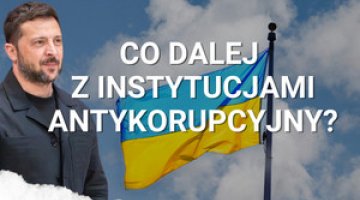Dmytro Firtash takes over one of Ukraine’s main TV stations
On 1 February, the Ukrainian businessman and politician Valeriy Khoroshkovsky sold 100% of his shares in Inter Media Group Limited, which held 61% of shares in Inter, one of Ukraine’s most popular TV channels, as well as seven other commercial stations and the Ukrayinski Novyny news agency. According to the official statement, the transaction cost US$2.5 billion. The buyers were the leading Ukrainian businessman Dmytro Firtash, who had the option to purchase the company’s shares, and – as it was announced on 7 February – the head of the Administration of President Viktor Yanukovych Serhiy Lovochkin. The shares purchased by the latter will be made over to the management of Firtash’s company GDF Media Limited. Khoroshkovsky and Firtash are believed to be long-term business partners, and to have business ties with Russia. In the official statement, Khoroshkovsky said his reason for selling was 'the lack of conditions for the company’s further development'. In December 2012, after the complete reconstruction of the government, Khoroshkovsky lost the post of first deputy prime minister (previously he had been the head of the Security Service), and currently holds no public posts. Since autumn 2012, the Inter TV station he owns has changed its news policy to one more critical of the government.
-
The change in ownership at Inter is a major political event. Firtash’s acquisition of one of the most important TV stations in Ukraine has strengthened his position on the political scene, since the politicians associated with him were marginalised by the changes in government. The most likely reason for Firtash’s purchase of Inter is his need for a strong political tool to promote his own interests. It is possible that Firtash needs the station to resist possible attempts by the 'family' – the most expansive oligarchic group in Ukraine, linked to President Yanukovych’s son Oleksandr – to take over his assets. At the same time, it is possible that the transaction is part of a wider agreement between on one hand the 'family', and Firtash and Lovochkin on the other, on the assumption that they will promote Viktor Yanukovych in their media, in return for guarantees of protection, or the expansion of Firtash’s own interests.
-
The sale of the shares in Inter TV may mean that Khoroshkovsky will withdraw from Ukrainian political life. It is possible that he took the decision in fear of being politically unable to protect his business, in case the 'family' make any attempts to seize it. In December 2012, Khoroshkovsky lost the battle for a top position in the new government, and came into harsh conflict with Prime Minister Mykola Azarov. At the same time, the 'family' has long expressed an interest in getting their own television channel, especially in the light of the upcoming presidential election campaign in 2015, when Viktor Yanukovych will seek re-election.
- The amount announced for the transaction is excessive, and the figure should be considered unreliable; it is possible that Khoroshkovsky and Firtash had other, secret scores to settle. The value of the whole media group is estimated by experts at no more than US$1 billion. The participants on the media market in Ukraine (including Firtash) do not have available funds on this scale (his assets are valued at US$2-3 billion). In addition, in late 2012 Inter lost its position as the most popular television station in Ukraine, and the media group’s financial results suggest that it is barely turning a profit. Nevertheless, Inter remains an important instrument of influence on public opinion.





